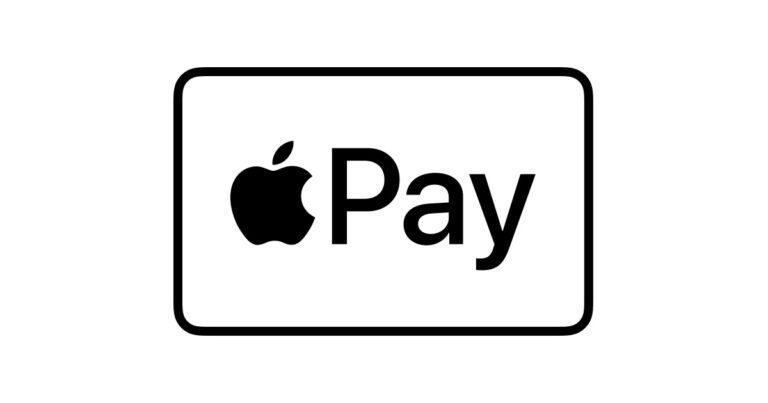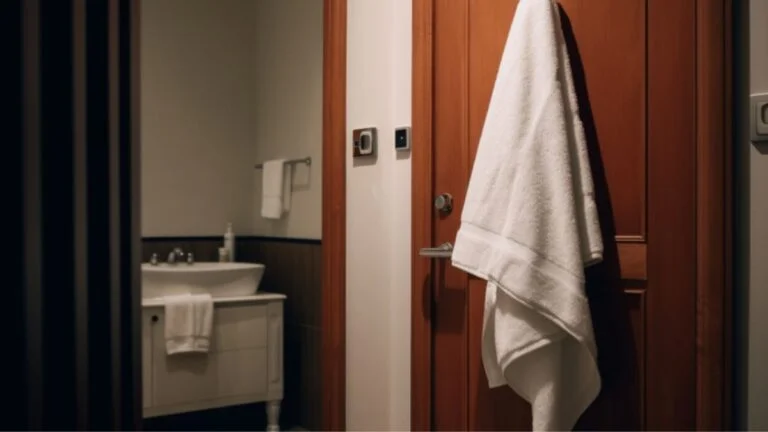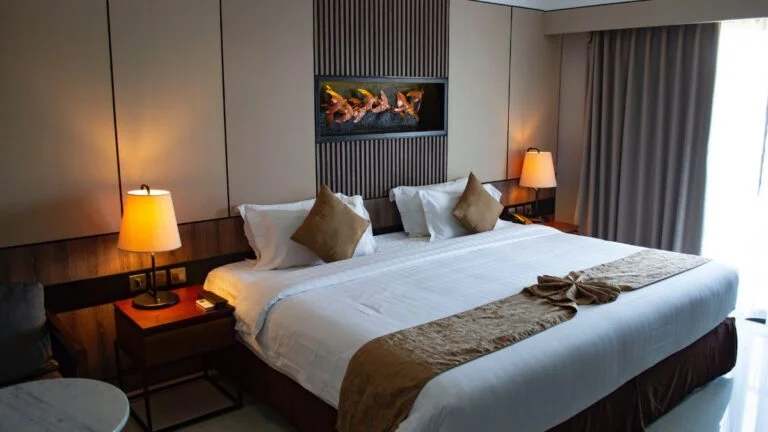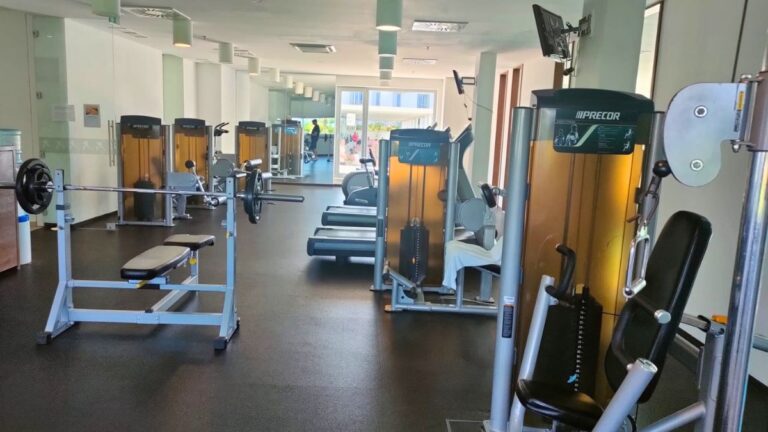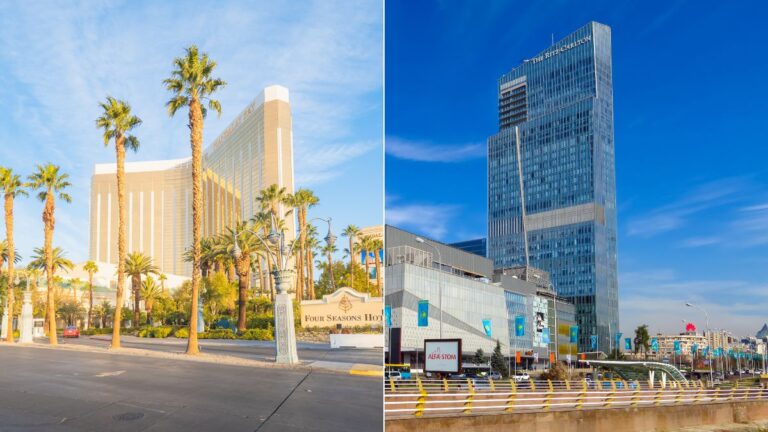What Are Hotel Incidental Charges and How Do They Get Determined?

As participants in Amazon Associates and other programs, we earn from qualifying purchases. This comes at no additional cost to you. For more details, see our Affiliate Disclosure.
During your hotel stay, you might have noticed additional charges on your bill apart from the room rate. These charges, often labeled as ‘incidentals,’ can sometimes catch guests off guard. But what exactly are these incidental charges, and how are they determined? This article aims to demystify the concept of hotel incidental charges and shed light on the methods behind their calculation.
Defining Hotel Incidental Charges: A Brief Overview
Hotel incidental charges, as the name suggests, are secondary expenses that a guest may incur during their stay, separate from the primary cost of the room.
These charges cover a variety of services and amenities offered by the hotel, some of which a guest might voluntarily use, while others might be added automatically based on specific conditions.
Essentially, they’re costs related to any extra services or products a guest takes advantage of, beyond the basic provision of a room.
The existence of incidental charges is a way for hotels to manage and allocate costs for these additional services, ensuring guests pay only for what they use.
As they are variable in nature, it’s important for guests to understand what they might be charged for, even if the initial room rate seemed all-inclusive.
Common Examples of Incidental Charges
Incidental charges can vary based on the hotel’s offerings, location, and level of luxury. However, there are several common types of incidentals that guests may encounter during their stay. Here’s a rundown of some of the most prevalent:
- Room Service and In-Room Dining: Ordering food or beverages to be delivered to your room often incurs extra charges. This includes not only the cost of the food but also additional service fees and gratuities.
- Minibar Charges: Those tiny bottles and snacks inside your room might be tempting, but they typically come at a premium price.
- Telephone Calls: While some hotels offer complimentary local calls, others might charge for both local and long-distance calls made from the room’s phone.
- Laundry and Dry Cleaning: Sending clothes to the hotel’s laundry or dry cleaning service will add to your bill.
- Spa and Wellness Services: Massages, facials, and other treatments, unless included in a package deal, will be billed as incidentals.
- Pay-per-view Movies and Entertainment: Watching a movie or accessing premium channels on the room’s TV might come at an extra cost.
- Parking Fees: While some hotels offer complimentary parking, others, especially in urban areas, might charge daily parking fees.
- Resort or Facility Fees: Some hotels charge a daily “resort fee” which covers amenities like Wi-Fi, gym access, or pool usage. Even if you don’t use these services, the fee may be mandatory.
- Late Checkout Fees: If you wish to stay in your room beyond the standard checkout time, there might be an additional charge.
- Damage or Cleaning Fees: If there’s significant damage to the room or if excessive cleaning is required after your stay, the hotel might add a fee to your bill.
Being aware of these charges can help guests make informed decisions during their stay and avoid unexpected costs when it’s time to check out. It’s always a good practice to clarify with the hotel about potential incidentals upon arrival or even before booking.
The Difference Between Room Rate and Incidental Charges
Understanding the distinction between the room rate and incidental charges is crucial for travelers who want to manage their budget effectively and avoid unexpected expenses. Here’s a breakdown of these two concepts:
Room Rate
The room rate is the basic cost of renting a hotel room for a specific duration, be it nightly, weekly, or longer.
Inclusions: Depending on the hotel’s policy, the room rate might include basic amenities such as access to a fitness center, daily housekeeping, free Wi-Fi, and breakfast. These inclusions vary widely from one establishment to another.
Pricing Factors: The room rate is influenced by various factors, including the hotel’s location, star rating, seasonality, room type, and the prevailing market demand.
Payment: Most hotels require a deposit or a credit card on file to guarantee the reservation. Payment for the room rate can be made at the time of booking, during check-in, or check-out, based on the hotel’s policy.
Incidental Charges
Incidental charges are additional costs that arise from extra services or amenities used by the guest during their stay.
Inclusions: These could range from room service, minibar usage, spa treatments, to parking fees, among others, as previously outlined.
Pricing Factors: Incidental charges are determined by the guest’s usage of additional services. The pricing might also depend on the hotel’s pricing policy, level of luxury, and partnerships with external service providers.
Payment: Incidental charges are typically settled at the end of a guest’s stay during check-out. To cover potential incidental expenses, hotels often place a hold on a guest’s credit card upon check-in, which is then adjusted based on the actual expenses incurred.
While the room rate is a predictable cost that guests can plan for in advance, incidental charges are more variable. They depend on individual guest preferences and behaviors during the stay. For a transparent and smooth experience, guests should always inquire about what’s included in their room rate and what potential incidental charges they might face.
How Hotels Calculate and Apply Incidental Charges
Understanding the calculation and application of incidental charges can alleviate surprises during check-out. Hotels have systematic methods to determine and impose these charges to ensure both clarity for guests and profitability for the establishment. Here’s a breakdown of how these charges are typically calculated and applied:
Service-Based Pricing
Each extra service or amenity offered by the hotel has a predefined cost. For instance, there will be set prices for items in the minibar, spa treatments, or room service menus.
These prices often include not only the base cost of the product or service but also overheads, service charges, and in some cases, a profit margin.
Variable Pricing
Some services may have variable costs based on duration or consumption. For instance, telephone charges can vary based on call duration and international vs. local rates.
Parking fees might be determined by the length of time a vehicle is parked, especially in valet services.
Hold Amounts
At check-in, hotels usually place a hold on a guest’s credit card as a security measure. This amount is an estimate, based on the hotel’s average guest incidental expenditure.
The actual incidental charges incurred are deducted from this held amount, and the balance is released back to the guest’s account after check-out.
Automatic Charges
Some incidental charges may be automatic, irrespective of whether the guest uses the service. For example, a resort fee might be applied daily regardless of whether a guest uses the amenities covered by that fee.
It’s important for hotels to clearly communicate such charges to guests, preferably at the time of booking.
Tracking Systems
Modern hotels employ integrated management systems that track guest consumption and preferences. For example, when a guest uses the minibar, sensors can automatically register the consumed items, adding them to the guest’s bill.
Similarly, charges from in-house restaurants, spas, or other facilities are directly added to the room’s tab, creating a seamless tracking process.
Final Bill Presentation
During check-out, guests are presented with an itemized bill that lists all incidental charges separately from the room rate.
It’s best practice for front desk staff to go through the bill with guests, clarifying any charges and addressing disputes or concerns immediately.
For guests, awareness of how these charges are calculated and applied is the key to managing expenses during a hotel stay. On the other hand, for hotels, transparent communication and efficient tracking systems ensure guest satisfaction and trust.
Why Hotels Require Credit Card Holds for Incidentals
Hotels frequently place holds on credit cards to safeguard themselves against potential unpaid bills. When guests avail of additional services or cause damages, the hotel needs a mechanism to ensure they can recover the costs. The hold acts as a guarantee, ensuring that funds are available for any such eventualities.
Encouraging responsibility is another reason for these holds. When guests are aware that their card might be charged for extra services or damages, they are often more cautious about how they use hotel amenities. This system deters any reckless behavior or excessive use of chargeable services.
The check-out process also becomes more streamlined with credit card holds. Instead of handling multiple transactions or addressing disputes at the time of check-out, the hotel can directly charge the card based on the final bill, making the process faster and more efficient for both the hotel and the guest.
Moreover, holds ensure guest accountability. If a room needs extensive cleaning or there’s any damage, the hotel has a financial safety net to fall back on. This system means guests need to be more mindful of their actions and how they treat the hotel property.
Lastly, from a business perspective, these holds assist in maintaining a steady cash flow for the hotel. Even if certain charges are contested, the hotel can ensure its operational costs are covered while resolving any discrepancies with the guest.
Credit card holds for incidentals are a crucial practice that protects the hotel and ensures a more seamless experience for the guest.
Do You Get Hotel Incidental Charges Back?
When you check into a hotel, a hold is often placed on your credit card to cover potential incidental charges. This hold is not an actual charge but rather a temporary freeze on a specific amount to ensure funds are available if needed.
The good news is that if you don’t incur any incidental charges during your stay, the held amount is released. The duration for this release varies depending on the hotel’s policies and the bank’s procedures. While some holds are removed almost immediately upon check-out, others might take several days or even a week to clear.
However, it’s important to note that even though the hold is removed, it might still appear on your online banking statement until the bank processes the release. In some cases, if you check out very close to when your credit card statement is generated, the hold might appear on that month’s statement, but it will be adjusted in the next one.
If you notice that the hold remains on your account longer than expected, it’s a good idea to contact the hotel and your bank. Sometimes communication between the hotel’s billing system and the bank might encounter delays or issues. Most hotels are accustomed to addressing such concerns and can provide clarity or expedite the release process.
While the hold placed on your card for incidental charges might seem concerning initially, you do get this amount back provided you haven’t incurred additional charges during your stay. It’s always wise to keep an eye on your bank statements to ensure everything aligns post-checkout.
Tips to Avoid Unwanted Incidental Charges
Avoiding unwanted incidental charges during a hotel stay ensures a seamless and pleasant experience, free of unexpected expenses. Here are some tips to help you steer clear of inadvertent costs:
- Read the Fine Print: Before booking, carefully review the hotel’s policies. This will give you insights into potential charges and services that might come with an extra fee.
- Clarify at Check-In: When you arrive, ask the front desk about any potential incidental charges. Inquire about the cost of amenities and services you plan to use.
- Avoid the Minibar: Minibar items are typically overpriced. Instead, consider buying snacks or drinks from a nearby store.
- Use Your Phone: Hotel room phones often have high rates for both local and long-distance calls. Using your personal phone or a calling app can save you these charges.
- Check for Free Wi-Fi: Some hotels charge for premium internet access. Always check if there’s a free option available, and be wary of paid tiers unless you really need faster speeds.
- Monitor Energy Consumption: Some eco-friendly hotels might have charges or incentives related to energy consumption. Turn off lights and electronic devices when not in use.
- Park Wisely: If the hotel charges for parking, consider looking for nearby public parking options which might be cheaper.
- Respect Hotel Property: Avoid causing any damage to the room or its contents. Charges for repairs or excessive cleaning can be hefty.
- Review Your Bill: Before checking out, go over your bill to ensure all charges are accurate. If you see any discrepancies, address them with the front desk immediately.
- Avoid Late Check-Out: Unless you’ve arranged for a late check-out in advance, leaving your room late can result in extra charges. If you think you’ll need more time, ask the front desk ahead of time, preferably the night before.
- Use Loyalty Programs: If you’re a member of a hotel’s loyalty program, you might be eligible for waived fees or complimentary services, so always mention your membership during booking and check-in.
By being proactive and informed, you can easily avoid unwanted incidental charges and ensure a hassle-free stay at your chosen hotel.
Understanding Your Rights as a Hotel Guest
Understanding your rights as a hotel guest is vital to ensure a pleasant and trouble-free stay. Being aware of these rights allows you to advocate for yourself should any issues arise. Here are some key rights and aspects you should be familiar with:
Fair Treatment: Hotels cannot discriminate based on race, color, religion, sex, national origin, or disability. Most countries have strict laws against discrimination in public accommodations.
Safety and Security: Hotels have a duty to ensure the safety and security of their guests. This includes well-maintained premises, functional locks, and appropriate responses to any threats or disturbances.
Privacy: Hotel staff cannot enter your room without a legitimate reason. While they have the right to enter for maintenance, cleaning, or safety concerns, they should do so at reasonable times and with prior notice, if possible.
Transparent Pricing: Hotels should clearly display their room rates, and any hidden fees or charges should be disclosed upfront. This includes costs for additional services, taxes, and resort fees.
Refunds and Cancellations: While each hotel has its own cancellation policy, they should be clear and reasonable. If the hotel fails to provide a reserved room or if there are significant issues with the room, you may be entitled to a refund or compensation.
Freedom from Unwarranted Eviction: While hotels have the right to evict guests for valid reasons (like non-payment, overstay, or disturbances), they cannot evict you without cause. Any eviction should be carried out respectfully and following legal procedures.
Access to Personal Information: Hotels collect personal data during the booking and check-in processes. You have the right to know what information is being collected, how it’s used, and to whom it’s disclosed.
Right to Complain: If you’re unhappy with any aspect of your stay, you have the right to voice your concerns. Hotels should have a process in place to handle complaints and work toward a resolution.
Facilities as Advertised: If a hotel promotes certain amenities, such as free Wi-Fi, a gym, or a pool, they should be available and in working order during your stay. If these facilities are out of order or unavailable, the hotel should inform guests in advance or provide alternatives.
Right to Redress: In cases where disputes cannot be resolved directly with the hotel, many countries have consumer protection agencies or tourism boards where grievances can be lodged.
Being informed about your rights as a hotel guest empowers you to have a better experience and ensures that hotels maintain their standards and responsibilities. If ever in doubt, it’s always good to consult local regulations or seek advice from consumer protection entities.
Disputing an Incidental Charge: Steps to Follow
Disputing an incidental charge from a hotel can be a straightforward process if approached methodically. Here’s a step-by-step guide on how to handle such situations:
- Review Your Bill: Before checking out, always request an itemized bill. Go over each charge carefully to ensure you recognize and agree with all the listed items.
- Address It Immediately: If you spot an unfamiliar or incorrect charge, bring it to the attention of the front desk or the billing department right away. It’s easier to resolve disputes while you’re still at the hotel.
- Gather Evidence: If you have any evidence that supports your claim, such as photos, receipts, or documentation, gather and organize them. This can be crucial in proving your case.
- Speak Calmly and Clearly: When discussing the issue, remain calm and explain the situation clearly. Being confrontational might not yield the best results. Often, genuine mistakes can be quickly rectified with a civil conversation.
- Escalate If Necessary: If the front desk is unable to resolve the matter, ask to speak with a manager or supervisor. They typically have more authority to make decisions or provide solutions.
- Document Conversations: Keep a record of whom you spoke with, the date and time, and the details of the conversation. This can be helpful if you need to take the dispute further.
- Formal Complaint: If the matter isn’t resolved to your satisfaction at the hotel, consider writing a formal complaint letter or email to the hotel’s corporate office or customer service department. Provide all relevant details, including your stay dates, room number, and the nature of the disputed charge.
- Contact Your Credit Card Company: If the hotel doesn’t provide a satisfactory resolution, you can dispute the charge with your credit card company. They’ll investigate the matter on your behalf. Be ready to provide them with any evidence or documentation you’ve gathered.
- Consult Consumer Protection Agencies: In some regions, there are consumer protection agencies that can assist in disputes related to hospitality services. They might offer mediation services or provide guidance on your rights.
- Online Reviews and Feedback: While this shouldn’t be your first step, sharing your experience on online platforms can sometimes prompt a more rapid response from the hotel, especially if they’re keen on maintaining a good reputation.
The key is to approach the situation calmly and methodically. Most hotels aim to ensure guest satisfaction, and a majority of disputes can be resolved amicably with open communication.

